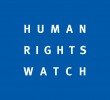MANILA — As part of its ongoing and dynamic dialogue with the Philippine Government on issues of human rights, rule of law, and law enforcement, the U.S. Embassy recently organized a seven-day seminar for investigators and prosecutors working on cases of suspected unlawful killings.
Thirty-two Philippine National Police (PNP) investigators, 10 Department of Justice (DOJ) prosecutors, and four regional directors of the Commission on Human Rights attended the seminar, which provided an opportunity for investigators and prosecutors to work together, leading to better understanding of each other�s roles and cooperation on future cases.
The seminar�s goal was to share experiences, information, and procedures that can be applied to the successful investigation and prosecution of unlawful killings. Visiting trainers offering their experience and insight included personnel from the U.S. Federal Bureau of Investigation, the U.S. Department of Justice�s International Criminal Investigative Training Assistance Program (ICITAP), U.S. Attorney�s Office, and U.S. Marine Corps Judge Advocate General�s office.
Topics discussed included investigating cold cases and murder for hire; crime scene investigation and analysis; theories of command responsibility; prosecution of military personnel; human rights; and investigator/prosecutor cooperation in major cases.
During her remarks, Ambassador Kenney encouraged participants to �make sure that the public has confidence in their law enforcement and security officials, and that any instances of perpetrators taking the law into their own hands are addressed � immediately and promptly.
�I am really impressed with the work going on so far,� she said. �I want you to know that we are here to share experiences, advice, ideas, and techniques � ways we have tackled some of these very important issues and continue to do so in the United States.�
U.S. judicial and law enforcement assistance is aimed at strengthening the rule of law, professionalizing law enforcement and judicial authorities, and empowering civil society so institutions can play a more effective role in investigating and prosecuting crime.










